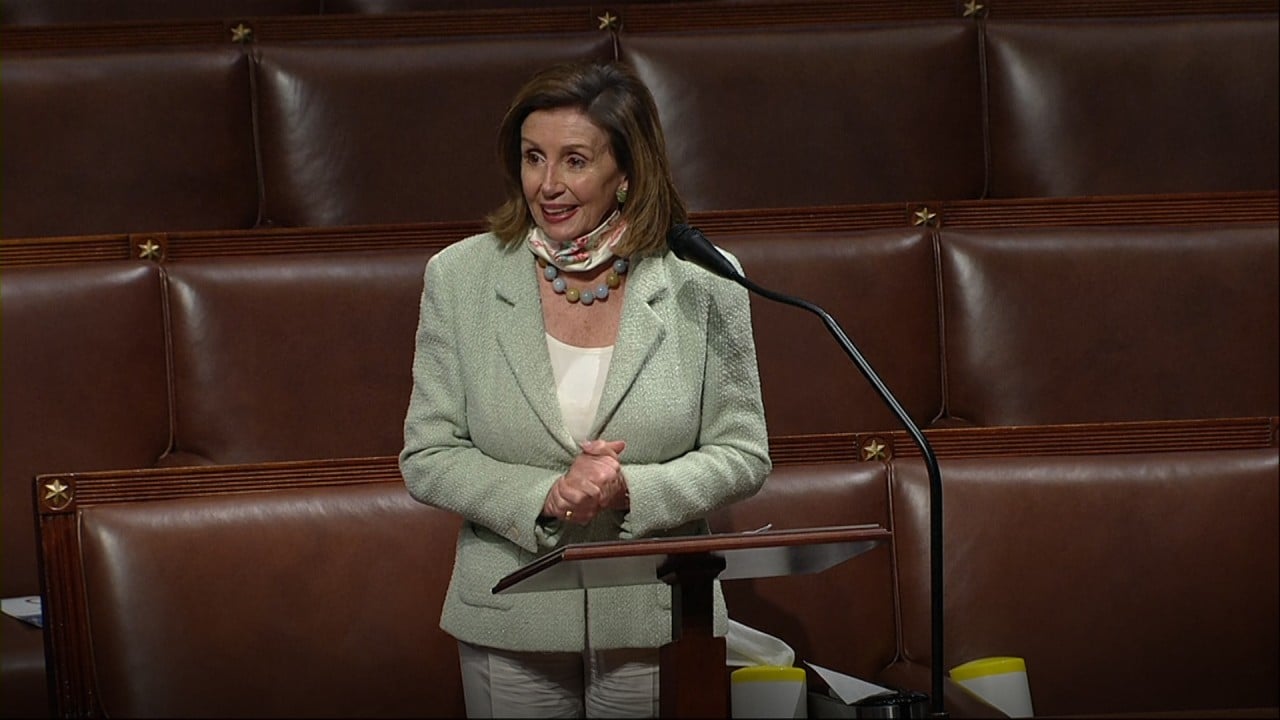
Tibet bill passes Congress after being added to US spending bill
- The act directs the US government to issue economic and visa sanctions against any Chinese official who interferes with the Dalai Lama’s succession
- The bill also prohibits China from establishing any new consulates in the US until Washington is granted its own diplomatic outpost in Tibet
US lawmakers on Monday approved legislation demanding Beijing grant Washington a US consulate in Tibet and paving the way for sanctions against Chinese officials who interfere in the succession of the Dalai Lama.
The Tibet Policy and Support Act moved through Congress as an amendment to this year’s US$1.4 trillion government spending bill, legislation that will fund the government for the coming fiscal year. The omnibus spending bill, which was rolled together with a US$900 billion coronavirus relief package, will next travel to the White House to be signed into law.
Additions such as the Tibet act to the spending bill are commonplace at the close of the congressional session, when lawmakers bolt on unrelated bills to the must-pass funding bill as a way to secure their passage. The Tibet bill’s approval came almost a year after it breezed through the House of Representatives.
The Tibet bill was one of a number of China-related measures added to the spending bill, ranging from restrictions on pandemic relief funding going to China-linked businesses to a clause that directs the US administration to determine whether Beijing’s treatment of ethnic minority groups in the Xinjiang Uygur autonomous region constitutes a crime against humanity.

03:21
US House of Representatives sends Uygur Human Rights Policy Act to Trump’s desk for approval
Unlike the recently passed military budget, outgoing US President Donald Trump has given no indication that he intends to veto the funding bill, an act that would cause the government to shut down. The White House has indicated that he will sign the spending bill into law, Politico reported.
Among its provisions, the Tibet act prohibits China from establishing any new consulates in the US until Washington is granted its own diplomatic outpost in Tibet.
Tibetan political leader in ‘historic’ meeting with new US special envoy
The bill also directs the US government to issue economic and visa sanctions against any Chinese official deemed “complicit in identifying or installing a government-approved candidate” to succeed the Dalai Lama, the region’s 85-year-old spiritual leader.
Like much other legislation challenging Beijing on its human rights record, Chinese officials have called the Tibet bill an attempt by US lawmakers to undermine China’s sovereignty, and insist that the Dalai Lama’s reincarnation must “comply with Chinese laws and regulations”.
After its House passage in January, foreign ministry spokeswoman Hua Chunying said the bill sent a wrong signal to “forces seeking Tibet independence”, despite the fact that the exiled Dalai Lama does not advocate for the region’s independence from China.
The legislation also directs the US State Department to increase the powers of its special coordinator for Tibetan issues, a role that has sat empty for the duration of the Trump administration.
US State Department report on Tibet a month overdue, sources say
Advocates for a stronger US policy towards Tibet applauded the passage of the bill, which was introduced last year by Senator Marco Rubio, a Florida Republican and Representative Jim McGovern, a Democrat from Massachusetts.
By passing the act, the US Congress had “not only upgraded its overall support for Tibet, but specifically laid a marker down on the global stage declaring that the international community will not accept China’s interference in the Dalai Lama’s succession and will oppose China’s human rights abuses in Tibet for as long as they continue,” said the Washington-based International Campaign for Tibet in a statement.
Among other China-related measures, the funding bill also included a provision that will prevent pandemic relief funds going to companies partly owned by Chinese entities or whose board of directors includes a resident of China.
On Hong Kong, a new reporting requirement included in the bill directs the US administration to issue an annual assessment of the presence of Chinese mainland-affiliated security services in the city, including their use of surveillance and their contribution to rising “self-censorship” there.
The reports are required through 2047, when Hong Kong’s semi-autonomous status under the Sino-British Joint Declaration is set to expire.
Additional reporting by Jacob Fromer

